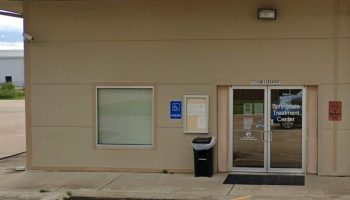Suboxone Recovery Center of Arkansas
About Suboxone Recovery Center of Arkansas
Suboxone Recovery Center of Arkansas is an outpatient treatment center that focuses on helping people overcome opioid use disorder. You’ll find their comfortable and discreet premises in Fayetteville, Arkansas. They’re conveniently surrounded by a host of other healthcare providers, including registered dietitians, therapists, an orthodontist, and a lactation specialist.
As the name suggests, they offer Suboxone medication as part of their medication-assisted treatment (MAT) program. This not only removes uncomfortable and potentially dangerous withdrawal symptoms, but it also reduces cravings so it’s easier to avoid relapse.
Treatment From Someone Whose Walked an Addiction Journey
One thing quite special about this center is that it’s run by a professional who has personally experienced substance addiction and knows its challenges intimately. Dr. Robert Tomlinson is described by past patients as honest and persistent, and they praise his refreshing perspectives on addiction and sobriety.
His first-hand experiences with addiction means he has a lot of practical advice to give. He also has a layer of empathy that makes his office a judgement-free space.
He strongly recommends his patients to join local 12 Step groups on top of his program, for the sense of community and accountability they bring.
MAT with a Long-Term Perspective
While MAT plays a big role in their recovery approach, they don’t stop there. Their long-term goal is to help you maintain sobriety without maintenance medication. This involves developing emotional regulation skills and building up your relapse prevention strategies so you can manage your triggers.
Dr. Tomlinson is patient and understanding, so you won’t feel rushed through treatment or pushed to reduce your medication dosage before you’re ready.
| Levels of Care | Detox Service Setting | Programs | Payment Options |
|---|---|---|---|
|
Inpatient and residential programs provide round-the-clock medical and emotional support as you live at the treatment facility. This level of care may be recommended if you have severe addictions or mental health conditions since it removes outside distractions and allows you to focus solely on therapy. |
In outpatient therapy, you’ll attend therapy sessions several times each week while living at home. This is ideal if you have a strong support system and a lower risk of relapse. Outpatient treatment offers flexibility to maintain work, school or family obligations. |
||
|
Inpatient detox occurs in a dedicated treatment facility. You’ll live there around the clock and receive intensive medical support and supervision to help manage your withdrawal symptoms. It is suitable for individuals with moderate to severe addictions as it ensures a stable detox environment. |
Outpatient detox gives you access to medically supervised withdrawal services while still allowing you to live at home. You’ll attend a clinic for treatment and monitoring. This flexible option is suitable for those with mild to moderate withdrawal symptoms who have strong support systems. |
||
|
Alcohol detox programs offer medical support to help individuals withdraw safely from alcohol. Your care team may use medications to ease your symptoms and provide medical monitoring to address complications. |
Drug detox programs support individuals who are withdrawing from addictive substances like cocaine and heroin. Medical support helps you manage symptoms in a controlled and safe environment so you can achieve initial sobriety. |
||
|
Private Insurance
|
Self Pay
|
Levels of Care
Inpatient and residential programs provide round-the-clock medical and emotional support as you live at the treatment facility. This level of care may be recommended if you have severe addictions or mental health conditions since it removes outside distractions and allows you to focus solely on therapy.
In outpatient therapy, you’ll attend therapy sessions several times each week while living at home. This is ideal if you have a strong support system and a lower risk of relapse. Outpatient treatment offers flexibility to maintain work, school or family obligations.
Detox Service Setting
Inpatient detox occurs in a dedicated treatment facility. You’ll live there around the clock and receive intensive medical support and supervision to help manage your withdrawal symptoms. It is suitable for individuals with moderate to severe addictions as it ensures a stable detox environment.
Outpatient detox gives you access to medically supervised withdrawal services while still allowing you to live at home. You’ll attend a clinic for treatment and monitoring. This flexible option is suitable for those with mild to moderate withdrawal symptoms who have strong support systems.
Programs
Alcohol detox programs offer medical support to help individuals withdraw safely from alcohol. Your care team may use medications to ease your symptoms and provide medical monitoring to address complications.
Drug detox programs support individuals who are withdrawing from addictive substances like cocaine and heroin. Medical support helps you manage symptoms in a controlled and safe environment so you can achieve initial sobriety.
Contact

Hayley’s love of writing started with exploring the wondrous world of Narnia and slowly grew into a desire to help others through practical, accessible writing. She writes about detox to bridge the gap between the lost, who aren’t sure where to turn, and the people willing and able to help them.

Peter W.Y. Lee is a historian with a focus in American Cold War culture. He has examined how popular culture has served as a coping mechanism for the challenges and changes impacting American society throughout the twentieth century.




